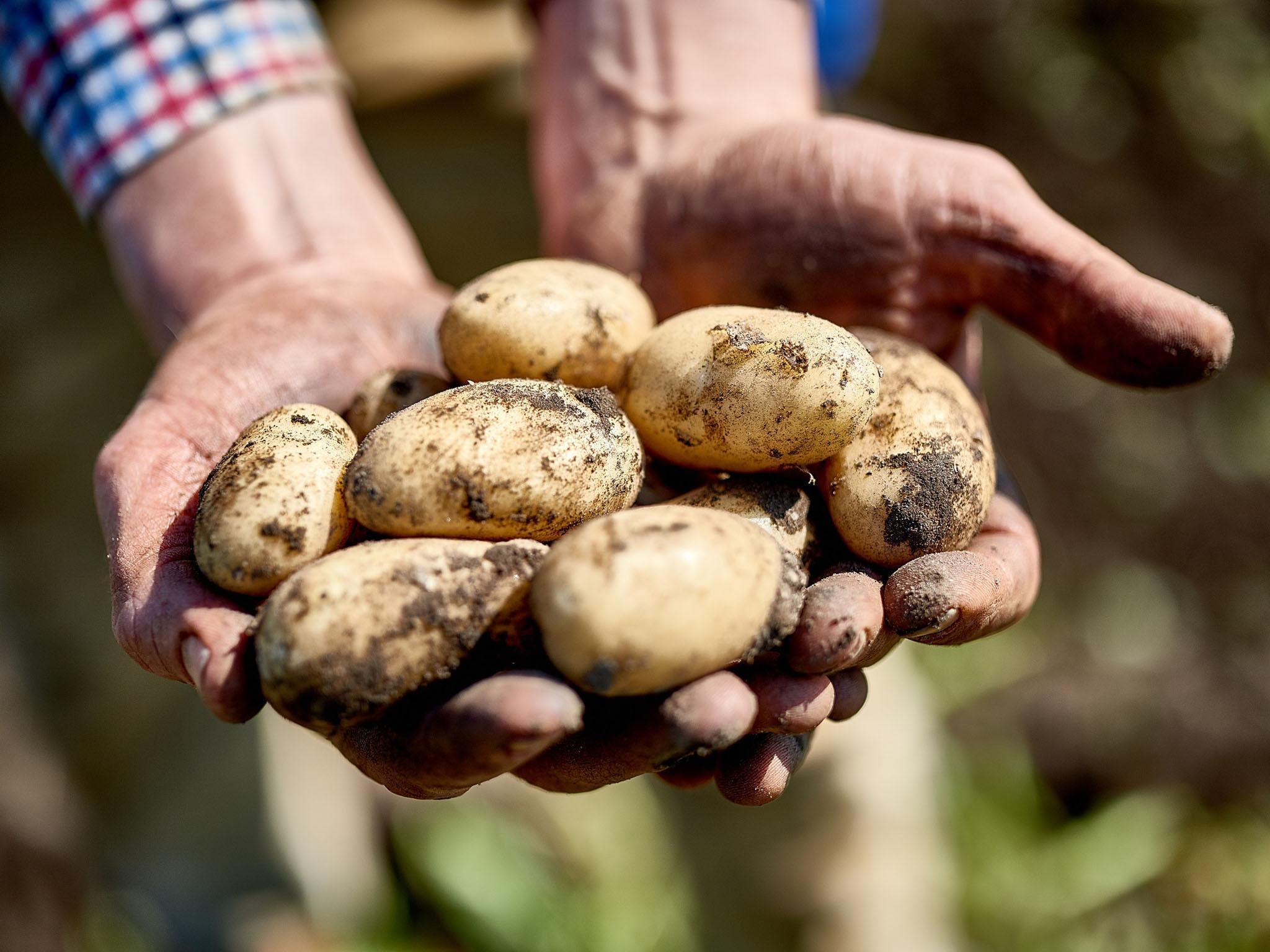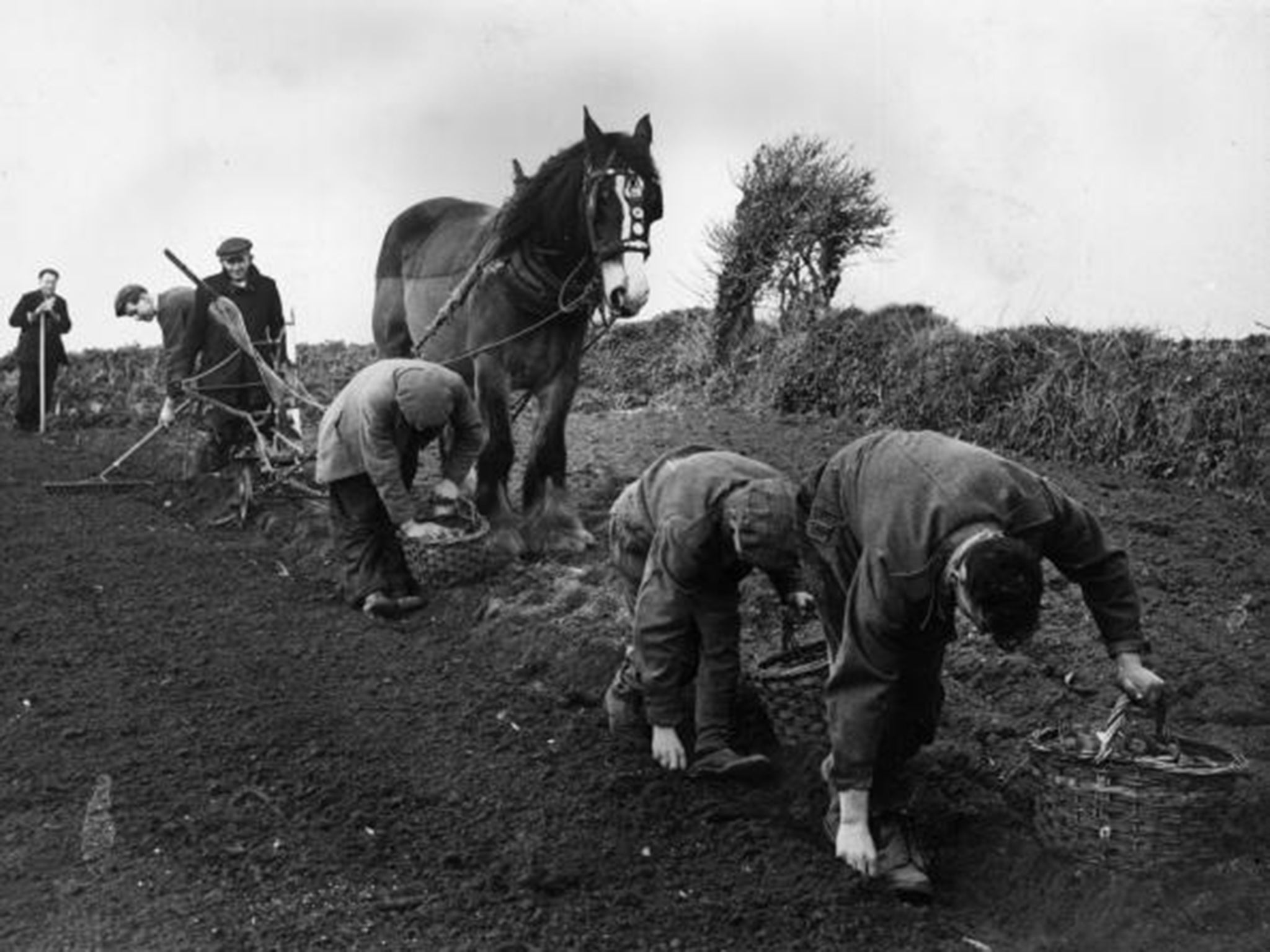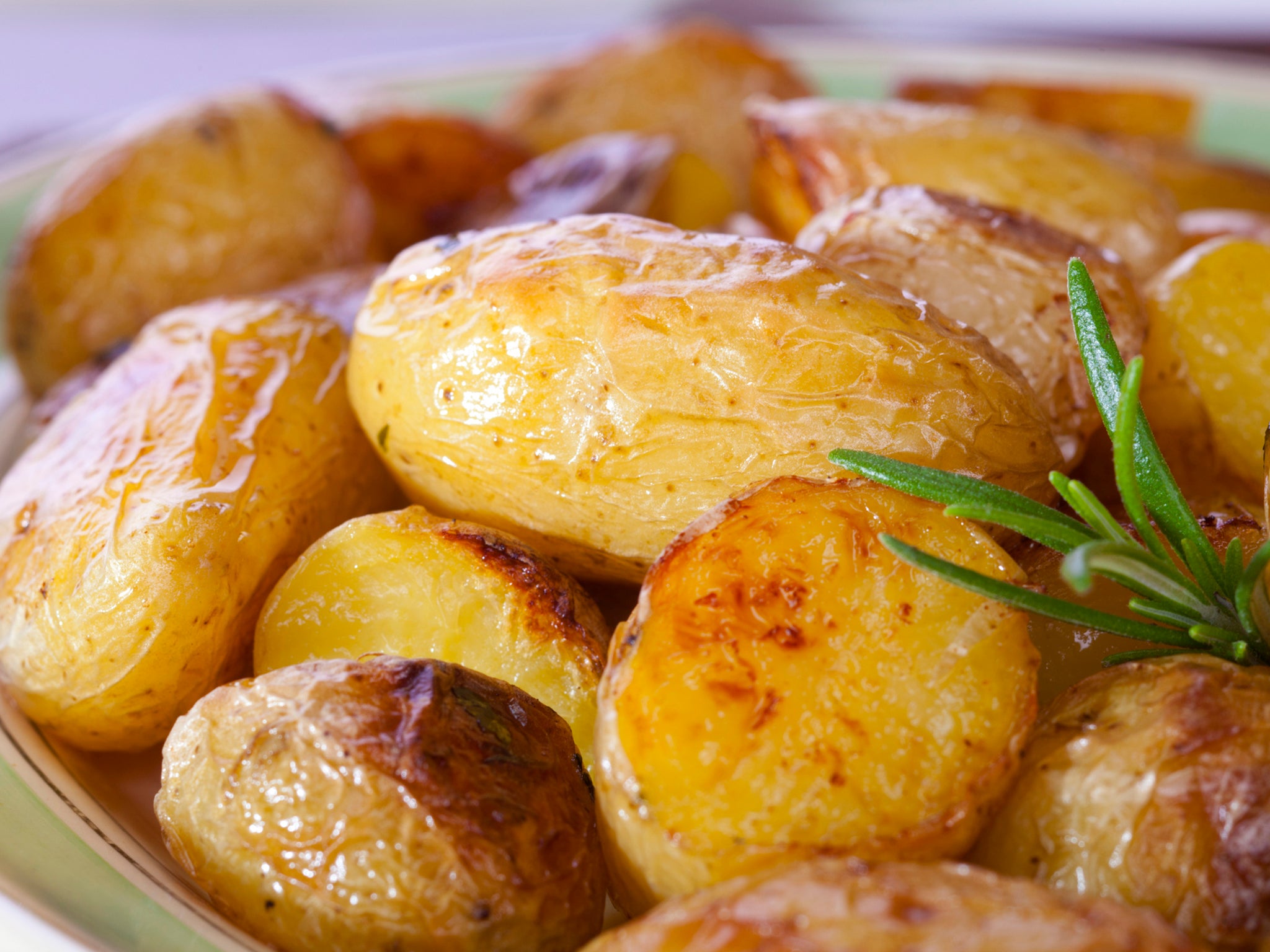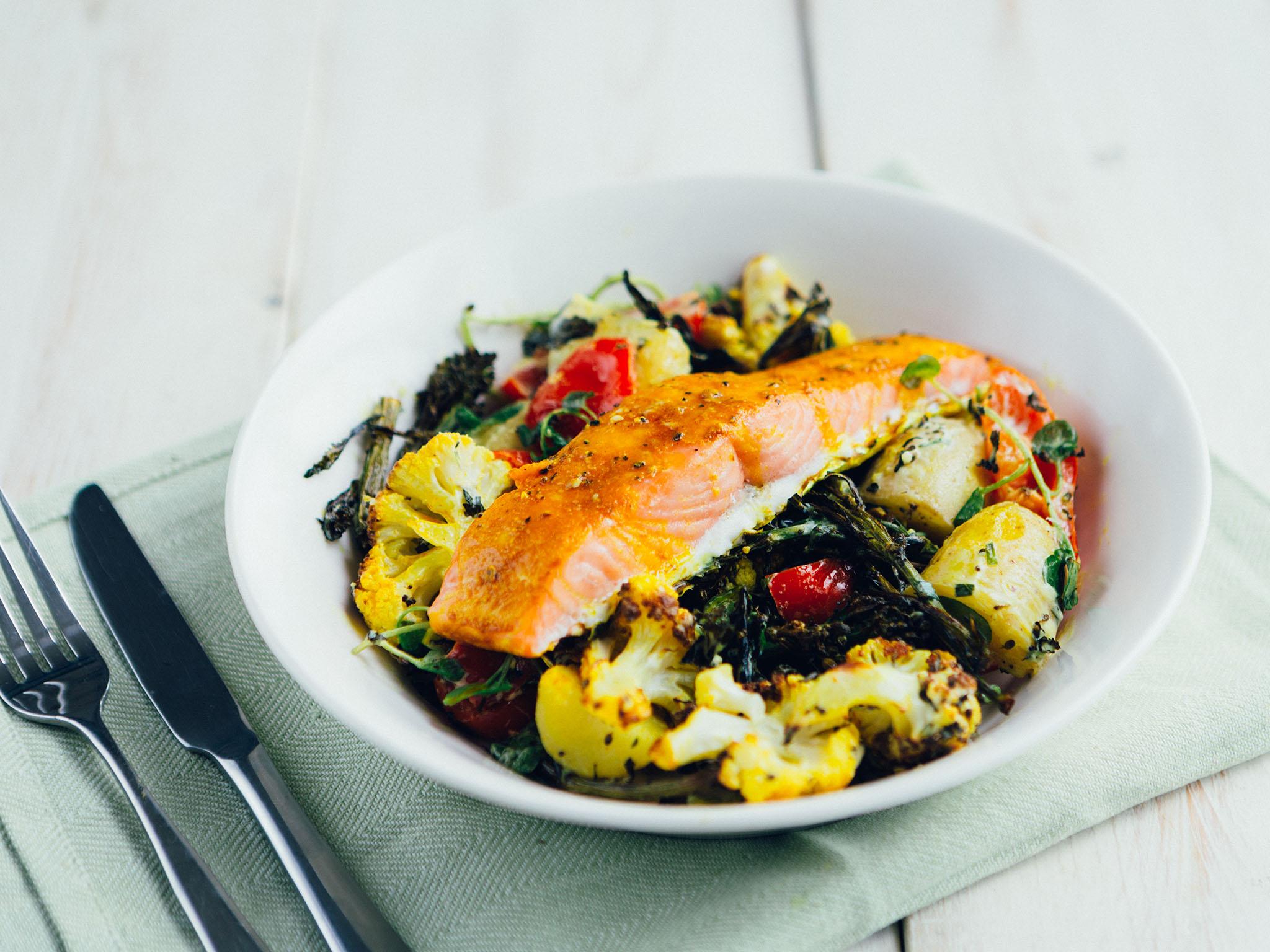Cornish new potatoes: The rise of British seasonal produce
As the clamour for seasonal British produce grows, now is the time for Cornish new potatoes to take centre stage

The movement to buy British is growing at an exponential rate, as consumers look to increase their awareness and knowledge of where and how the food on our plates is being sourced.
And around 60 per cent of shoppers say they try to buy British food wherever they can, and even more (76 per cent) think it’s important to support British farmers.
For many, seasonal food means freshness, bold flavours and natural, non-artificial production, as we’re eating it at the time of year nature intended for us to enjoy a particular fruit, vegetable, meat or herb.
And Cornish new potatoes are exactly that; they’re the nation’s first mainland new potato crop of the summer.
Grown in the county’s fertile soils stretching from Land’s End to Exeter (albeit Devon), the unique maritime climate offers generally frost-free and warmer growing conditions; growers work in harmony with both the landscape and weather, which enables them to plant – and harvest – earlier than other UK mainland crops from areas such as the East Midlands or East of England.
Many of those producing Cornish new potatoes are third, fourth or even fifth-generation growers, with a strong pedigree of producing a delicious product with a firmly British heritage.

Joe Button, of EW Button and Son, farms land predominantly located between Bodmin Moor and the north Cornish coast. “My family have been farming the same land for three generations now, passed down from my grandfather Edward, to my father Andrew Button, and now to me. I’ve personally been farming at Tregawn since I was 18 and I am still well supported by my father. As well as potatoes, both new season and maincrop, I also grow wheat, barley and blueberries,” Button says. “We’re a farming family, but we’re also looking after the land for the generations to come. My family has passed down that sense of loyalty and stewardship that comes with sustainably farming the land and we take pride in the crop we produce.”

When are Cornish new potatoes in season?
The Cornish new potato season is generally from June until early August but, as with any seasonal product, it is at the mercy of the ever-changing Cornish climate. “Cornwall can be quite wild and unforgiving, with momentarily changing weather. We have to be able to understand it and work with it, which naturally comes with its own set of challenges, but once you do, you’re able to take advantage of all the natural benefits that you can get from the unique climate and geography,” Button adds.
A particularly good or difficult growing season with temperamental weather can move the season back or forwards by a week or so. It is best to keep an eye on the supermarket shelves from early June to find Cornish new potatoes at their finest.
What flavours should we pair with Cornish new potatoes?
The potatoes are famous for their soft, pale, loose skin and sweet, creamy texture. Affordable, incredibly versatile and easy to prepare, they need very little attention as their delicate skins mean no peeling is necessary.

They have a naturally buttery texture and creamy flavour, so are best served simply with Cornish butter, sea salt and fresh mint. Generally speaking, new potatoes are best prepared either by steaming, boiling or roasting, so they work well in many of summer’s staple dishes, including hot and cold salads, barbecue side dishes or one-pot roasts.
Why should we cook with Cornish?
More commonly now, potatoes are mainly the preserve of the over-fifties, as younger generations opt for trendier, and often more expensive, carbohydrate choices.
However, being naturally fat-free and high in nutrients including potassium, vitamins B6 and C, as well as a good source of fibre, potatoes can challenge any of their carbohydrate “superfood” counterparts as a healthy addition to a summer plate. As more focus is placed on provenance, Cornish growers are at last seeing an increase in demand for the best of British produce.
“We hope that Cornish new potatoes will continue to build up a loyal following, both locally and nationally, that love our freshly harvested new potatoes as much as we do and look forward to their arrival each summer,” Button says. “It’s incredibly satisfying to be able to grow fresh, healthy food and watching the crop develop day by day, from planting right through to harvesting. It takes hard work, dedication and an equal amount of meticulous planning and on-your-feet thinking – on account of the ever-changing Cornish weather! But the feeling of going out into the field and harvesting that first crop of the year, for me there’s nothing better.”
With ever-growing pressure to reduce the carbon footprint created by air miles and freight needed for the international transportation and importing of fresh produce, products such as Cornish new potatoes are key to keeping our strong agricultural heritage alive.
Cornish new potatoes are available from Tesco stores nationwide from mid-June.

Salmon rainbow salad bowl
Serves 2
Bursting with vitamins and minerals as well as flavour, this healthy bowl packs a substantial punch.
2 tbsp turmeric
2 tbsp rapeseed oil
8 cauliflower florets
8 stems purple sprouting broccoli
2 red peppers, sliced
8 Cornish new potatoes
2 salmon fillets
2 handfuls watercress or rocket
For the dressing
3 tbsp low-fat natural yogurt
2 tsp rapeseed oil
2 tsp lemon juice
Zest of 1 lemon
1 tbsp finely chopped fresh tarragon
Salt and black pepper, to season
Preheat the oven to 200C /Fan 180C/Gas 6. Mix the turmeric and oil together. Place the cauliflower, broccoli and red peppers in a roasting dish, drizzle with 1 tbsp of the turmeric oil and roast for 20-25 minutes until tender.
Wash the potatoes and simmer gently in salted water for 10-15 minutes until tender and cooked through. Remove from the heat, drain and cut into bite-sized chunks.
Meanwhile, place the salmon fillets in a roasting tin, spread with the remaining turmeric mix, season and roast for 15 minutes, until cooked through.
Mix all the ingredients for the dressing together in a large bowl. Once the potatoes, broccoli, cauliflower and peppers have cooled, place them in the bowl with the dressing along with the watercress.
Divide the dressed salad between two bowls and top each one with a salmon fillet to serve.
For more information about Cornish new potatoes, visit Seasonal Spuds
Join our commenting forum
Join thought-provoking conversations, follow other Independent readers and see their replies
Comments
Bookmark popover
Removed from bookmarks